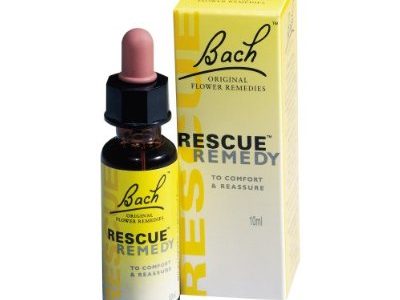Hello Solo Nation! Today we have a super special treat for you, so put in your earbuds and get ready to rock it. Today we’re going to get some real answers about self care. What is self care, you ask? That elusive concept that nobody’s got time for? Because I got to get my kids ready for school, get myself ready for work, get my deadlines met, make all the meals, clean up all the messes, and be the emotional sounding board for my kids too. Who has time for me?
You do. And you must.
Today, Dr. Stephanie Moulton Sarkis is with us. She is a psychotherapist specializing in anxiety, gaslighting, narcissistic abuse, and ADHD. She is the author of several books, including the best-selling Gaslighting: Recognize Manipulative and Emotionally Abusive People – and Break Free. She is a National Certified Counselor, a Licensed Mental Health Counselor, an American Mental Health Counselors Association Diplomate, and a Florida Supreme Court Certified Family and Circuit Mediator. She’s been in private practice for 20 years. She’s a senior contributor for Forbes, and is also a contributor to Psychology Today. She’s the host of the Talking Brains podcast, and she’s based in Tampa, Florida.
In this episode, we talk about…
[1:57] Why solo parents should prioritize self-care
Think about the analogy of an airplane. When you’re in an airplane, they tell you to put your oxygen mask on before your kids’, and that’s kind of like self-care. We need to practice really good self-care in order to be the best parents we can be. It’s impossible to be a perfect parent, but there are many ways to be a great parent. One of them is to take care of yourself.
In today’s society, we are taught that everybody else’s needs come first, but we really need to look out for ourselves. There is evidence showing that when you take care of yourself, you have a greater level of perceived parental efficacy. You perceive yourself as a more effective parent and you have a lower level of perceived stress. This is especially true for proactive self-care, meaning you’re taking care of yourself before a stressor comes. Reactive self-care means you take care of yourself only in reaction to a stressor. As parents, we need to make an effort to move from reactive to proactive self-care.
[3:48] Reactive stress
Solo parents can deal with a lot of reactive stress, as they go through a separation or divorce process, grieve the loss of the family structure, taking on a role as a step-parent, confront custody issues, and more. There is a lot of stress.
Dr. Sarkis explains reactive stress from a biological perspective. When we experience stress, we release a hormone called cortisol. Cortisol leads to increased heart rate and that feeling of adrenaline pumping through your body. If it stays in your system long enough, it can cause lasting health issues.
Stress also impacts your nervous system. There are two parts to this system: the sympathetic nervous system and the parasympathetic nervous system. Think S for Stress and P for Peace. The sympathetic nervous system is your fight, flight, or freeze response. Your eyes dilate, your heart races, and you feel like you need to run. That response is biologically wired into us, and your brain reacts to keep us safe. The parasympathetic nervous system is your relaxation response. Your heart rate lowers and your breathing becomes more relaxed – that’s what we’re working for. We want to decrease the amount of times your sympathetic nervous system is getting triggered and increase the amount of times your parasympathetic nervous system is being triggered. If you are in a constant state of stress, it can leave you feeling exhausted and can have other negative health effects.
[5:26] Relaxation techniques
If you are feeling the sympathetic nervous system revving up, you can take out some of that energy by pushing on the wall, punching pillows, or getting up and going for a walk. A technique that works for one person may not work for someone else. So part of self-care is trying different things to see what works for you.
Dr. Sarkis recommends looking at what you want to try, or what you do already that allows you to relax and have fun. You’re more likely to lean on things you’re already using than to start new habits. When you’re in the middle of a stressful situation, it can be helpful to think about the things that give you joy.
There is another school of thought that says, just feel the stress and the anxiety. The more you try to push it away, the more it comes back with a vengeance. Instead, you can reassure yourself that these feelings are temporary and that feelings are not facts.
For a quick solution, Dr. Sarkis suggests trying the Name Three Things technique. When you’re feeling stressed, you think about three things you can see, three things you can feel, and three things you can hear, and you do that over and over again until you get back to baseline. You can say them out loud or in your head, but it’s a method that allows you to focus and realize that your feelings of stress are temporary.
As parents, we can also take on the stress of our children and worry about solving their problems. It is totally normal to react to our children’s emotions. The important thing, again, is taking care of yourself and checking in with your feelings. If you need to take a “parent time out”, take that time out.
[9:21] Dealing with grief
Grief can be another source of stress, and it can feel like it goes on forever. You can use similar techniques to cope, like taking a breath or doing the Name Three Things technique.
It is also important to validate yourself and your feelings. Tell yourself this is rough, or this is unfair, but I’m still here and I’m putting one foot in front of the other. Sometimes the victory is just being able to get out of bed, get dressed, and get on with your day. Grief is a difficult thing to go through. It’s not very forgiving, so we need to be forgiving toward ourselves.
[12:33] Techniques to help when you have a child going through stress
It can be so difficult to parent a child experiencing grief or other stressful situations. Dr. Sarkis shared that getting outside can be really helpful when coping with stress. Your brain slows down to match the pace of nature, and you can get distracted with everything going on. It is helpful to get out to a safe place and separate ourselves from the environment that triggers us.
Dr. Sarkis also suggested simply asking your kids what would help them to feel better. A lot of kids are in tune with that, and we need to listen to them. You can also come up with a code word where you can point out when it looks like they’re on the brink of a meltdown. When they use that word, you can reassure them that they are entitled to their feelings and help them to process their stress productively. They can go outside and yell, they can write a story, do a craft, or whatever else they need to do to make themselves feel better.
You are partnering with your child and helping them to get through that moment without judgment. The most frightening stress response is when a kid shuts down and blocks people out. As a parent, it is important to teach your children how to deal with stress. They can’t avoid stress, but they can cope more effectively.
[17:02] Getting into the swing of a custody arrangement
As a solo parent, there could be a custody arrangement where you have your children some days and not others. When you do have them, your day might feel completely full of parenting. When you don’t have them, it can be hard to cope with the empty house.
It is completely normal to feel distraught, and to feel a sense of loss and separation anxiety when your kids are with the other parent. If you’re having issues with doing daily chores or taking care of yourself then that may be extreme, but an overall sense of loss is very normal.
You can develop coping strategies for these feelings as well. Proactive self-care is huge, and doing things that will relax and/or distract you is helpful. These feelings are not shameful – it just means you love your kids.
[21:13] How to maintain self-care when your kids are taking out their anxiety and grief on us
As always, it is important to check in with yourself and make sure you are doing okay. The way we interact with our kids influences how they feel about us. You can offer to talk to them if they want to talk. If the other parent is a source of stress, be sure to avoid value judgements about the other parent in front of your child.
Children need to get into the swing of a custody arrangement just like you do. You can have a fun activity that you do to transition back to your house, or they may need to be alone and have some space to make this transition. Asking them what they want to do and how they want to handle it will be important.
[27:24] Finding joy in difficult moments
When you try to push things away, they come back. Focusing on the fact that emotions are temporary can help you to find joy again. There is always room to start new activities, engage in your hobbies, and interact with your community to bring more joy into your life.
Ultimately, Dr. Sarkis urges us to find meaning in life. If we try to find happiness or joy, it can be elusive. If we focus on doing something to work toward the greater good, you will feel like your life has meaning. Walking away with this wisdom, we can build better days. When we build better days, we continue to build a better life.
Links Mentioned:
Website: https://www.soloparentmag.com
Instagram: https://www.instagram.com/soloparentpodcast
Facebook: https://www.facebook.com/soloparentnation
Connect with Dr. Sarkis online:
Blog: www.stephaniesarkis.com/blog
YouTube: www.youtube.com/StephanieSarkis
Twitter: www.twitter.com/stephaniesarkis
Facebook: www.facebook.com/StephanieSarkisPhD
Instagram: www.instagram.com/sarkisphd
LinkedIn: www.linkedin.com/in/StephanieSarkis
Pinterest: www.pinterest.com/StephanieSarkis
Twitch: www.twitch.tv/StephanieSarkis






